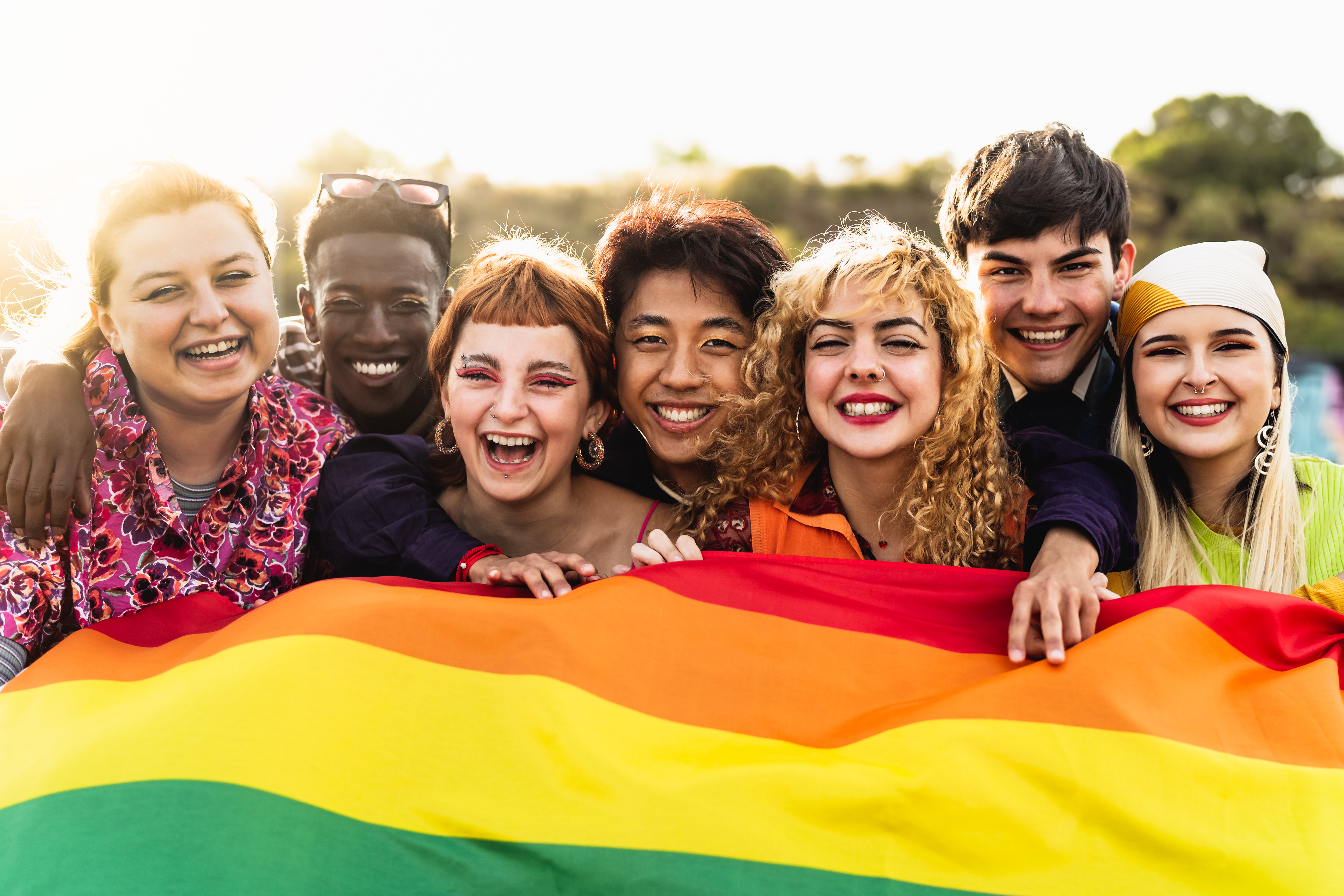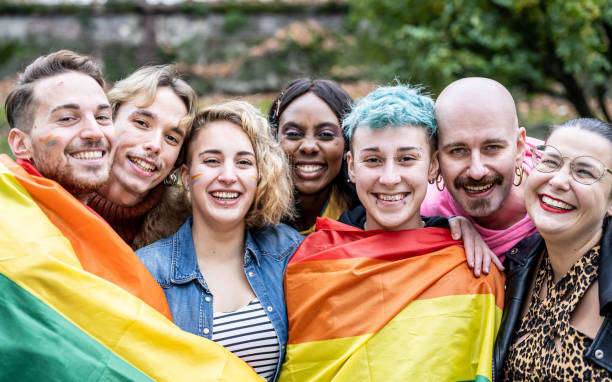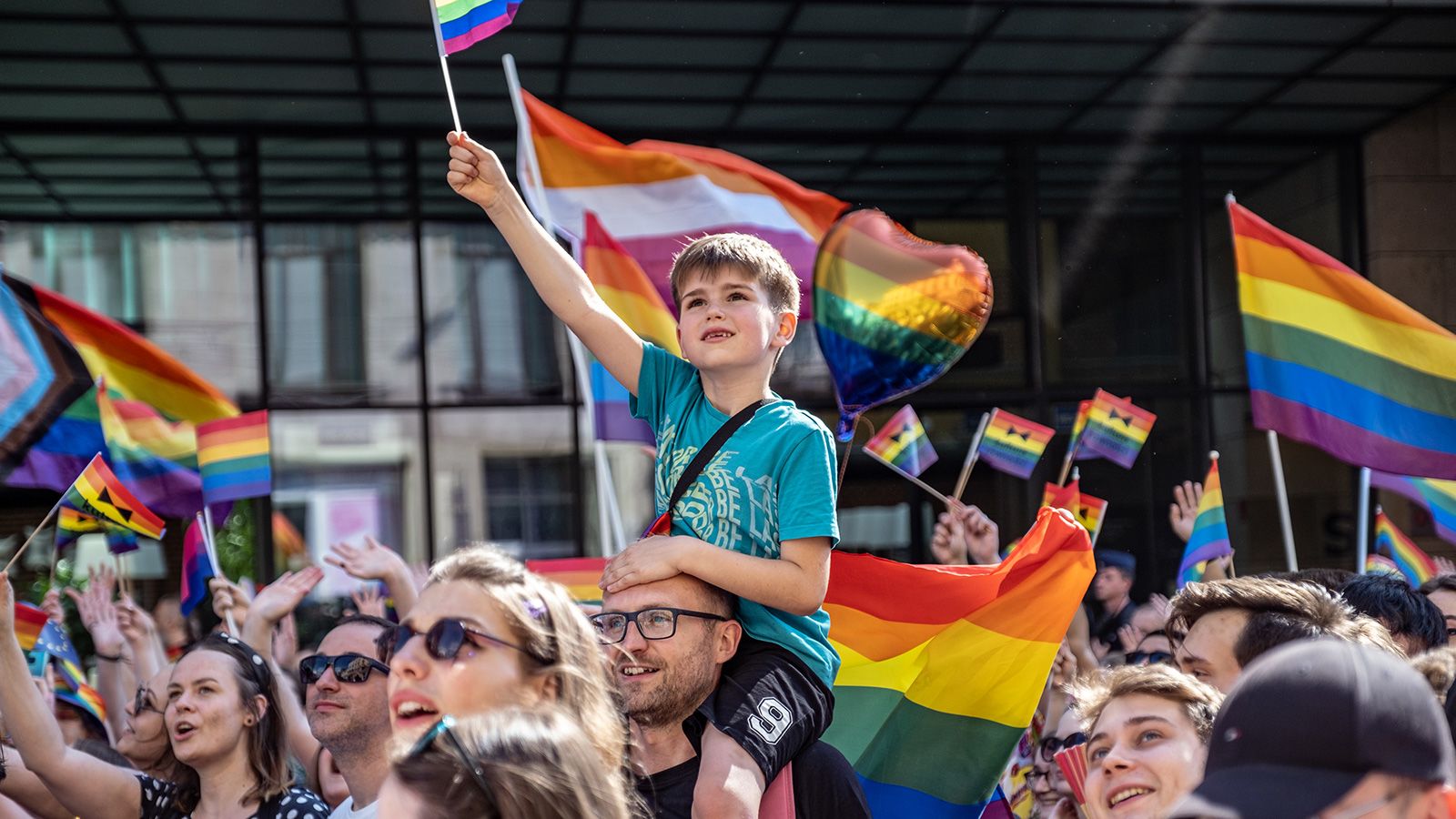Why Is Supporting LGBTQ+ Youth Through Coming Out Crucial?
Supporting LGBTQ+ youth through coming out is essential for nurturing their mental well-being, fostering acceptance, and building resilience. The process can trigger anxiety and fear, making counseling and peer support important. Embracing their identity leads to increased confidence and empowerment. Rejection, especially from family, can hinder self-acceptance, emphasizing the need for supportive networks. Family acceptance positively impacts mental health. Bullying and discrimination harm self-esteem, highlighting the importance of safe spaces. Local LGBTQ+ centers offer tailored services and community understanding. Seeking help from professionals and understanding LGBTQ+ identities are imperative. Advocacy and allyship amplify support for the LGBTQ+ community.
Key Takeaways
- Support reduces anxiety and fear during the coming out process.
- Acceptance fosters confidence, self-identity, and resilience.
- Rejection can harm mental well-being, emphasizing the need for supportive networks.
- Family support positively impacts mental health and self-acceptance.
- Community resources offer tailored services and safe spaces for LGBTQ+ youth.
Mental Health Impact

Coming out can have a significant impact on the mental health of LGBTQ+ youth, affecting their well-being and overall emotional state. The process of coming out can be challenging, triggering feelings of anxiety, fear, and uncertainty. During this time, it’s vital for LGBTQ+ youth to have access to counseling resources to navigate their emotions and thoughts effectively. Counseling can provide a safe space to express feelings, receive guidance, and develop coping mechanisms to manage the stress associated with coming out.
In addition to professional help, peer support plays a fundamental role in the mental well-being of LGBTQ+ youth. Connecting with others who’ve gone through similar experiences can offer a sense of belonging and understanding. Peer support groups can provide a platform for sharing stories, exchanging self-acceptance strategies, and building resilience.
Acceptance and Identity
Exploring your acceptance and understanding of your identity is an essential step in embracing who you are as an LGBTQ+ youth.
Self-acceptance plays a significant role in your personal growth journey. Acknowledging and embracing your true self can lead to increased confidence and overall well-being.
It’s normal to have doubts and fears, but remember that your identity is valid and deserving of respect.
As you navigate your path towards self-acceptance, surround yourself with supportive and affirming individuals who uplift you.
Engage in activities that bring you joy and help you connect with your authentic self.
Reflect on your experiences, emotions, and aspirations to deepen your understanding of your identity.
Embracing your LGBTQ+ identity is a courageous and empowering journey.
Celebrate your uniqueness and remember that you aren’t alone.
Your journey towards self-acceptance is a reflection of your strength and resilience.
Stay true to yourself, and continue to grow and flourish in your identity.
Risk of Rejection
You may face the fear of familial rejection when coming out, which can have a profound impact on your mental well-being.
The risk of experiencing rejection from loved ones can lead to feelings of isolation and distress.
However, finding a supportive community can make a significant difference in managing these challenges.

Familial Rejection Impact
Facing the risk of familial rejection can be a significant challenge for LGBTQ+ youth as they navigate their coming out journey. The emotional turmoil that arises from the fear of being rejected by those closest to them can lead to psychological trauma and hinder their process of self-acceptance. Family dynamics play an important role in shaping an individual’s sense of belonging and identity, making familial rejection particularly impactful.
When faced with familial rejection, LGBTQ+ youth may experience feelings of isolation, betrayal, and confusion. The rejection from family members can amplify the struggles they already face in accepting themselves and embracing their identity. This can lead to a sense of unworthiness and inadequacy, affecting their mental well-being and overall outlook on life.
It is essential for LGBTQ+ youth to receive support and understanding during this vulnerable time. Providing a safe and accepting environment can help mitigate the negative impact of familial rejection, fostering a sense of belonging and encouraging self-acceptance.
Mental Health Consequences
Experiencing the risk of rejection, LGBTQ+ youth may encounter significant mental health consequences as they grapple with the fear of familial disapproval. The stigma surrounding LGBTQ+ identities can exacerbate feelings of anxiety, depression, and isolation. It’s vital to address these challenges promptly to safeguard the well-being of LGBTQ+ youth.
To mitigate the mental health effects of potential rejection, therapy options can provide a safe space for individuals to explore their emotions and develop coping strategies. Therapists specializing in LGBTQ+ issues can offer support tailored to the unique experiences faced by these youth. Additionally, stigma reduction efforts within families and communities can create a more accepting environment, reducing the fear of rejection.
Building strong support networks is essential for LGBTQ+ youth facing familial rejection. Connecting with peers, mentors, or LGBTQ+-affirming organizations can provide a sense of belonging and understanding. These networks offer valuable resources and guidance, fostering resilience and emotional well-being in the face of adversity.
Supportive Community Influence
Negotiating the risk of rejection from unsupportive communities, LGBTQ+ youth often seek acceptance and understanding from alternative sources. Supportive peers play an essential role in buffering the negative impact of potential rejection.
Finding a community that embraces diversity and creates an inclusive environment can greatly improve the well-being of LGBTQ+ youth maneuvering through the coming out process.
Supportive peers offer a sense of belonging and validation that can counteract feelings of isolation and alienation. In an inclusive environment, LGBTQ+ youth can express their authentic selves without fear of judgment, fostering self-acceptance and confidence.
These positive interactions with understanding individuals can enhance mental health and resilience, helping youth cope with the challenges of facing rejection from less accepting communities.
Family Support

Providing unconditional love and acceptance can greatly impact LGBTQ+ youth as they navigate their journey of coming out to their families. Parental guidance and open communication play a vital role in shaping a supportive environment for LGBTQ+ youth. When families offer unconditional love and understanding, it creates a safe space for their children to express their true selves without fear of rejection.
Family support is essential in building a foundation of trust and security for LGBTQ+ youth. It helps them develop a positive self-image and confidence in their identity. When parents and caregivers show empathy and a willingness to listen, it fosters a sense of belonging and validation for their children.
This support can lead to improved mental health outcomes, higher self-esteem, and overall well-being for LGBTQ+ youth.
Bullying and Discrimination
You may have experienced bullying and discrimination due to your LGBTQ+ identity, impacting your mental health and well-being.
It’s essential to recognize the harmful effects these negative experiences can have on you.
Seeking support from understanding individuals and communities can help you navigate through these challenges and promote your overall resilience and mental health.
Impact of Bullying
Bullying and discrimination can have profound negative effects on LGBTQ+ youth as they navigate their coming out journey. The long-term impact of facing hostility and prejudice from peers can be particularly damaging to their mental well-being and self-esteem. LGBTQ+ youth experiencing bullying often struggle to form positive peer relationships, leading to feelings of isolation and loneliness. The constant fear of being targeted or ostracized can have lasting effects on their ability to trust others and build a support system.
Moreover, bullying can hinder the coming out process, making LGBTQ+ youth hesitant to embrace their true selves due to the potential backlash they may face. This fear of rejection can cause them to internalize negative beliefs about their identity, impacting their confidence and sense of belonging.
As allies and supporters, it’s vital to create safe spaces where LGBTQ+ youth feel accepted and valued, helping them combat the detrimental effects of bullying and discrimination on their journey towards self-acceptance.
Effects on Mental Health
The impact of bullying and discrimination on LGBTQ+ youth can greatly affect their mental health, exacerbating feelings of isolation and self-doubt. It’s important to address these effects promptly and provide support.
Coping strategies can empower LGBTQ+ youth to navigate through these challenges. Encouraging them to seek therapy options can offer a safe space to process emotions and develop resilience. Self-care practices, such as mindfulness or engaging in activities they enjoy, play a significant role in maintaining mental well-being.
Peer support is invaluable during difficult times. Connecting with other LGBTQ+ individuals or allies can provide a sense of belonging and understanding. Knowing that they aren’t alone in their experiences can be incredibly comforting.
Encourage LGBTQ+ youth to build a support network that they can rely on. It’s crucial to remind them that seeking help is a sign of strength, not weakness.
Importance of Support
Support from family, friends, and the community is vital in combating the detrimental effects of bullying and discrimination faced by LGBTQ+ youth. Creating a supportive environment is essential for their emotional well-being. LGBTQ+ individuals who lack such support are at a higher risk of experiencing mental health issues, substance abuse, and even suicidal thoughts.
By fostering safe spaces and empowerment opportunities, you can help LGBTQ+ youth navigate the challenges they may encounter.
Being a source of support means actively listening, validating their feelings, and providing resources for assistance. Your encouragement and acceptance can make a significant difference in their lives. By standing up against discrimination and bullying, you contribute to creating a more inclusive and understanding community.
Empathy and kindness go a long way in ensuring that LGBTQ+ youth feel valued and respected. Together, we can build a world where all individuals, regardless of their sexual orientation or gender identity, can thrive in a supportive and affirming environment.
Community Resources

Explore local LGBTQ+ community centers for valuable support and resources as you navigate your coming out journey. These centers often provide a range of services tailored to LGBTQ+ youth, including supportive organizations, counseling services, safe spaces, and youth programs.
Supportive organizations within these centers can offer guidance, information, and connections to other resources in the community that can assist you during this important time in your life. Counseling services are also typically available to help you process your feelings, fears, and questions in a safe and confidential environment.
Safe spaces offered by LGBTQ+ community centers can provide you with a sense of belonging and acceptance, where you can freely express yourself without judgment. Youth programs organized by these centers can help you connect with peers who may be going through similar experiences, fostering a sense of community and understanding.
Suicide Prevention
Consider reaching out to trained professionals or hotlines if you or someone you know is experiencing thoughts of suicide as you navigate your coming out journey. It’s essential to have support systems in place to help you through this challenging time.
LGBTQ+ youth facing the complexities of coming out may encounter feelings of isolation, rejection, or fear, which can greatly impact their mental health. Crisis intervention and outreach initiatives are important resources that can provide immediate assistance and guidance in moments of distress.
Outreach programs tailored to LGBTQ+ individuals offer a safe space where you can express your emotions and concerns without judgment. These initiatives can connect you with counselors, support groups, and other resources that specialize in addressing the unique challenges faced by LGBTQ+ youth.
Education and Awareness
To enhance understanding and foster inclusivity, educating yourself and others about LGBTQ+ identities is essential in creating a supportive environment for all individuals.
In schools, advocating for LGBTQ+ inclusion in the curriculum and promoting inclusive programs can help students feel accepted and supported. By incorporating diverse perspectives and histories into educational materials, schools can create a more welcoming environment for LGBTQ+ youth.
Community outreach is another vital aspect of education and awareness. Hosting workshops specifically tailored for youth can provide a safe space for discussion and learning about LGBTQ+ issues. These workshops can cover topics such as gender identity, sexual orientation, and ways to be an ally to the LGBTQ+ community.
Advocacy and Allyship
By actively supporting and advocating for LGBTQ+ individuals, you can play a crucial role in creating a more inclusive and accepting environment for all. Advocacy involves actively speaking out against discrimination and supporting policies that promote equality. Your voice matters in raising awareness about LGBTQ+ issues and pushing for positive change.
Through education, you can learn more about the challenges faced by LGBTQ+ individuals and how to be a better ally. By standing up for LGBTQ+ rights and showing your support, you help create safer spaces where everyone can thrive.
Being an ally means taking action to support the LGBTQ+ community, even when it may not directly affect you. It involves listening with empathy, challenging harmful stereotypes, and amplifying LGBTQ+ voices. Your advocacy can make a significant impact on the lives of LGBTQ+ individuals, fostering a more inclusive society for everyone.
Together, through education, advocacy, awareness, and support, we can create a world where all individuals are accepted and celebrated for who they are.
Frequently Asked Questions
How Can I Support a Lgbtq+ Youth Without Outing Them?
To support an LGBTQ+ youth without outing them, respect their boundaries by creating a safe space where they feel comfortable sharing on their terms. Provide resources like LGBTQ+ helplines or support groups for guidance and assistance.
What Are Some Ways to Create a Safe Space for Lgbtq+ Youth?
To create a safe space for LGBTQ+ youth, consider hosting community events. Encourage ally training to educate and support. Prioritize mental health resources and peer support. Your efforts can foster a welcoming environment where everyone feels accepted and valued.
How Can I Help a Lgbtq+ Youth Navigate Religious Beliefs?
You can support LGBTQ+ youth managing religious beliefs by fostering open dialogues about family dynamics, encouraging peer support, and connecting them with community resources. This can positively impact mental health and foster acceptance.
Are There Online Resources for Lgbtq+ Youth in Rural Areas?
You can find online support and community resources specifically designed for LGBTQ+ youth in rural areas. These platforms offer valuable connections, guidance, and a sense of belonging that can make a significant difference in your journey.
How Can Schools Better Support Lgbtq+ Students in Sports Programs?
To better support LGBTQ+ students in sports programs, establish inclusive policies and safe environments. Encourage supportive coaches and accepting teammates. Create an atmosphere where all athletes feel respected and valued, fostering an environment for everyone to thrive and succeed regardless of their sexual orientation or gender identity.
Conclusion
Supporting LGBTQ+ youth through their coming out journey is essential for their mental health, acceptance, and sense of identity. By providing love, understanding, and resources, you can help combat the risk of rejection, bullying, and discrimination they may face.
Remember, your support can make a world of difference in their lives. Stay informed, be an ally, and continue advocating for a more inclusive and accepting society for all. Your actions matter.

Hey there! 👋 I’m a proud mom and passionate writer, sharing my parenting journey. 📝 Join me as I navigate the ups and downs of motherhood, offering tips, advice, and a sprinkle of humor along the way. 🌟







